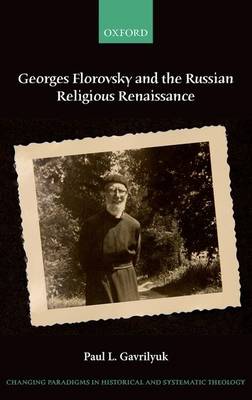
- Retrait gratuit dans votre magasin Club
- 7.000.000 titres dans notre catalogue
- Payer en toute sécurité
- Toujours un magasin près de chez vous
- Retrait gratuit dans votre magasin Club
- 7.000.0000 titres dans notre catalogue
- Payer en toute sécurité
- Toujours un magasin près de chez vous
Georges Florovsky and the Russian Religious Renaissance
Paul L. (Aquinas Chair in Theology and Philosophy, Aquinas Chair
146,95 €
+ 293 points
Description
This study offers a new interpretation of twentieth-century Russian Orthodox theology by engaging the work of Georges Florovsky (1893-1979), especially his program of a 'return to the Church Fathers'.
Spécifications
Parties prenantes
- Auteur(s) :
- Editeur:
Contenu
- Nombre de pages :
- 314
- Collection :
Caractéristiques
- EAN:
- 9780198701583
- Date de parution :
- 19-12-13
- Format:
- Livre relié
- Dimensions :
- 163 mm x 240 mm
- Poids :
- 638 g

Les avis
Nous publions uniquement les avis qui respectent les conditions requises. Consultez nos conditions pour les avis.






